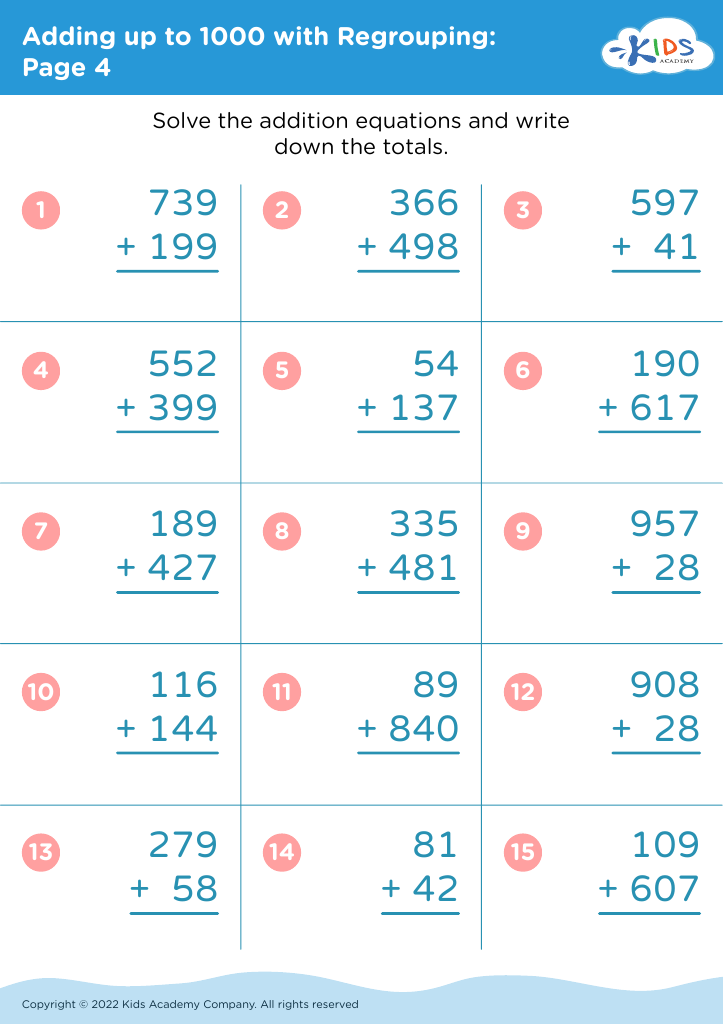Fraction comparison Adding up to 1000 with Regrouping Worksheets for Ages 5-8
3 filtered results
-
From - To
Engage young learners with our "Fraction Comparison Adding up to 1000 with Regrouping Worksheets for Ages 5-8." These carefully crafted worksheets help students grasp the fundamental concepts of fractions and regrouping while building their confidence in math. Perfect for kids aged 5-8, the exercises promote a hands-on approach to learning, encouraging critical thinking and problem-solving skills. A variety of fun, colorful activities will keep students engaged and motivated as they compare, add, and regroup fractions up to 1000. Equip your child with essential math skills today with our exciting and educational worksheets!
Fraction comparison and the skill of adding up to 1,000 with regrouping are foundational concepts that parents and teachers should prioritize for children ages 5-8 due to their fundamental role in math development. Grasping comparisons between fractions lays the groundwork for understanding proportion, ratios, and fractions' equivalencies, critical for advanced math topics like algebra and geometry. These early fraction concepts also bolster critical thinking and problem-solving skills because children learn to analyze and compare parts of a whole.
Addition skills, especially when augmented to higher numbers like 1,000 with regrouping, are crucial because they extend beyond basic arithmetic to more complex calculations. Regrouping, often known as carrying, teaches children important math operations and value placement. By mastering addition with regrouping, children understand the base-10 number system more deeply, a key skill applicable in more complex mathematics and everyday situations.
Both of these concepts contribute significantly to a solid mathematical foundation, which is essential not just academically but also in everyday tasks. Parents and teachers can ensure academic progression and practical competence for children by nurturing these skills early on. Engaging young learners with fraction comparison and higher-level addition introduces them to systematic thinking and numeracy, driving their overall cognitive development.














